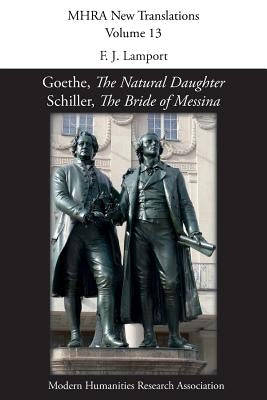Description
Written in 1802-03, The Natural Daughter and The Bride of Messina show Goethe and Schiller writing in a neo-classical manner far removed from the Sturm und Drang style of their early works. The plays reflect their authors' reaction to the troubled post-Revolutionary years of their composition -- a counter-Revolutionary one, both in an aesthetic and at least implicitly political sense. Their eponymous heroines embody hopes of restored familial harmony and political order, yet in both plays those hopes are tragically frustrated. Goethe's Eugenia, natural daughter of the Duke, is abducted and threatened with exile by a political conspiracy, and must renounce her aristocratic aspirations. Reduced to bourgeois anonymity, she hopes nevertheless one day to re-emerge and serve King and country, but the ending of the play is at best ambiguous. Schiller's Beatrice is loved by both Manuel and Cesar, brothers whose mutual hatred has plunged Messina into civil strife. Deception, misunderstanding, and a terrible secret weave a fatal web, whose unravelling leaves both brothers dead and Messina rulerless to face an uncertain future.
F. J. Lamport's bold new verse translation captures the highly refined, deliberately artificial style of these two unusual plays which, though less well known than some of their authors' other works, represent a remarkable poetic achievement.
Author: F. J. Lamport
Publisher: Modern Humanities Research Association
Published: 05/04/2018
Pages: 176
Binding Type: Paperback
Weight: 0.56lbs
Size: 9.21h x 6.14w x 0.38d
ISBN13: 9781781887677
ISBN10: 1781887675
BISAC Categories:
- Drama | European | German
This title is not returnable

